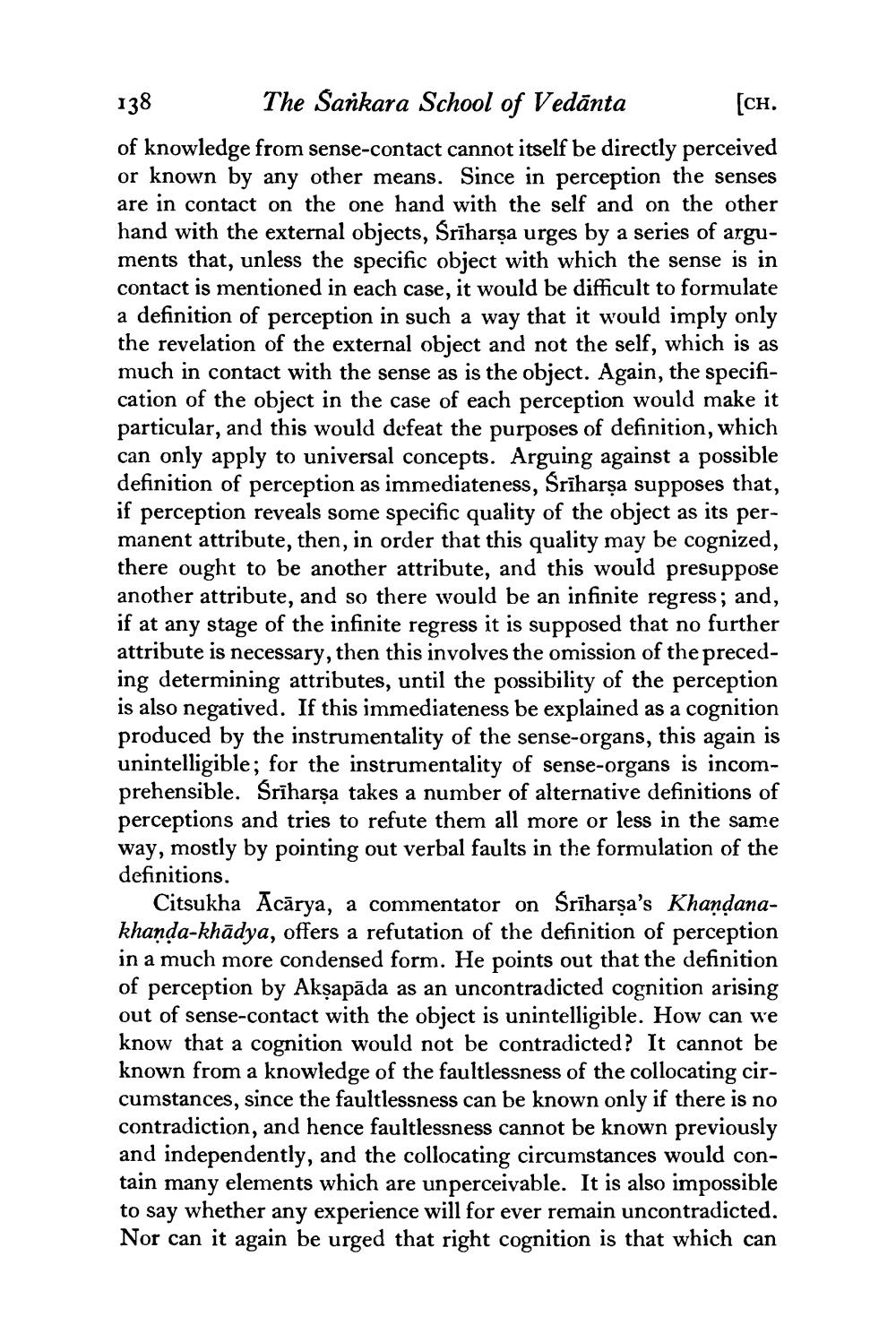________________
138
The Sankara School of Vedānta [CH. of knowledge from sense-contact cannot itself be directly perceived or known by any other means. Since in perception the senses are in contact on the one hand with the self and on the other hand with the external objects, Sriharsa urges by a series of arguments that, unless the specific object with which the sense is in contact is mentioned in each case, it would be difficult to formulate a definition of perception in such a way that it would imply only the revelation of the external object and not the self, which is as much in contact with the sense as is the object. Again, the specification of the object in the case of each perception would make it particular, and this would defeat the purposes of definition, which can only apply to universal concepts. Arguing against a possible definition of perception as immediateness, Srīharşa supposes that, if perception reveals some specific quality of the object as its permanent attribute, then, in order that this quality may be cognized, there ought to be another attribute, and this would presuppose another attribute, and so there would be an infinite regress; and, if at any stage of the infinite regress it is supposed that no further attribute is necessary, then this involves the omission of the preceding determining attributes, until the possibility of the perception is also negatived. If this immediateness be explained as a cognition produced by the instrumentality of the sense-organs, this again is unintelligible; for the instrumentality of sense-organs is incomprehensible. Śrīharşa takes a number of alternative definitions of perceptions and tries to refute them all more or less in the same way, mostly by pointing out verbal faults in the formulation of the definitions.
Citsukha Ācārya, a commentator on Śrīharşa's Khandanakhanda-khādya, offers a refutation of the definition of perception in a much more condensed form. He points out that the definition of perception by Akşapāda as an uncontradicted cognition arising out of sense-contact with the object is unintelligible. How can we know that a cognition would not be contradicted? It cannot be known from a knowledge of the faultlessness of the collocating circumstances, since the faultlessness can be known only if there is no contradiction, and hence faultlessness cannot be known previously and independently, and the collocating circumstances would contain many elements which are unperceivable. It is also impossible to say whether any experience will for ever remain uncontradicted. Nor can it again be urged that right cognition is that which can




